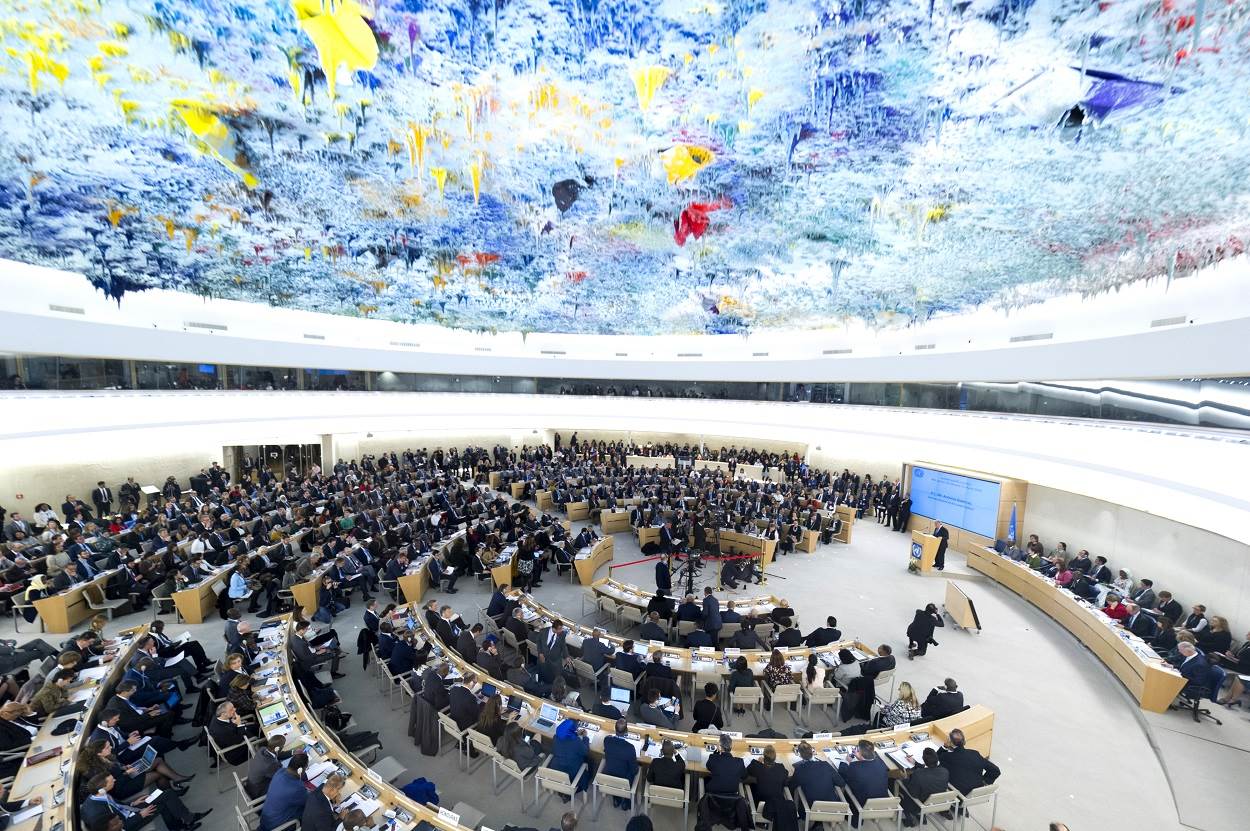Ræða forsætisráðherra í Mannréttindaráði Sameinuðu þjóðanna
Katrín Jakobsdóttir, forsætisráðherra, flutti ræðu í umræðum í mannréttindaráðinu um mannréttindi kvenna miðvikudaginn 27. júní 2019.
Annual full-day discussion on the human rights of women
Panel 1: Violence against women in the world of work
Statement by the
Prime Minister of Iceland
Her Excellency Katrin Jakobsdottir
Geneva, 27 June 2019
Ms / Mr. President,
Next year we celebrate the 75th anniversary of the United Nations. The commitment to gender equality was established in the UN Charter, promoting human rights and fundamental freedoms for all, without distinction as to race, sex, language or religion. At the time of signing only 4 of the 160 signatories to the Charter were women. While this number would be higher today, women are still far from achieving equality to political participation and women are still distant from vital decision-making that heavily impacts their lives.
The first World Women’s Conference in Mexico in 1975 was a landmark conference and lead us to our first World Plan of Action. In Iceland, more than 25 thousand women took the day off in October that same year to emphasize the importance of their contribution to the economy, both in paid and unpaid work. Near 80% of Icelandic women are now active in the paid labour force and their contribution has been decisive in ensuring economic growth and development in our country. Iceland has ranked at the top of the World Economic Forum’s Global Gender Gap Index for ten consecutive years. We are proud of our achievements, but also aware of the numerous remaining challenges to fully close the gender gap.
We have come a long way since Mexico in 1975 and it is clear to us that the Beijing Platform for Action from 1995 has played a decisive role in assisting us on that path.
Yet, we are constantly reminded that human rights have not followed a linear path. The backlashes have been far too many. Currently, previous victories on women’s reproductive freedom are under threat in far too many places. Women’s bodies are being re-politicized and debates that should have been over decades ago are emerging again. In the field of violence against women new phenomena have emerged, such as sexist hate speech, misogyny and online violence. LGBTIQ+ rights are also under threat – we hear that equality has moved too fast.
This comes at the same time as the #metoo movement continues to expose the systematic harassment, violence and everyday sexism that women across various layers of our societies are subjected to.
The demands of the voices who spoke up were clear: that women should be able to take part in public life and in the labor market without the ongoing threat of sexual and gender-based violence and harassment. They did not focus on an individual person or on a singular crime, but instead highlighted the structural nature of harassment and violence and its links to wider inequalities. The demand was for structural solutions and accountability by employers, unions, authorities and perpetrators.
The struggle against violence and sexual harassment against women has for decades been central within the women’s movement and therefore the explosive power of #MeToo came to some as a surprise. The novelty lies in the enormous participation, wide-ranging solidarity, international impact and the speed of information flow on social media. Whether the impact of all the various voices will be sustainable enough to break the wall of silence which has prevailed for centuries remains to be answered.
It can however be argued that this wave of the women’s movement has provided the gender equality struggle with a political momentum which has had a deep effect on our conception on gender. The MeToo movement has already delivered undisputed results – both in terms of social recognition and public awareness of the prevalence of sexual harassment and violence. Never before have governments, educational institutions and employers had to deal with this problem in its true scale.
Ms / Mr. President,
Governments, as well as international organizations, can slow down societal change, even stop it. Alternatively, they can facilitate change, and in some instances, lead the way. I am determined to do the latter.
Violence against women is both the cause and the consequence of wider gender inequalities, and we are committed to developing a better understanding of the revelations of the #MeToo movement, at home and away. The sexist structures can only be dismantled through a large movement, we must do this together. We must push back the push back against gender equality and universal human rights.
Last week the International Labor Organization ratified a historic convention and recommendation on violence and harassment in the world of work. The convention is an important step for creating a sound base in the support for human dignity and decent working environment for both men and women. In consultation with the organizations of the social partners, my government will aim at the ratification of this important instrument as soon as possible.
Additionally, we are very pleased to support the efforts of Canada to highlight the human rights aspects of this topic in this Council. We look forward to support its adoption at this session.
Ms / Mr. President,
The ongoing global Beijing+25 review and the ambitious aim of the full realization of the 2030 Agenda for Sustainable Development is our momentum to review both our progress ad challenges, as well as an opportunity to strengthen our political efforts for the full and effective implementation of the Beijing Platform for Action once and for all.
We owe it to the previous generations who fought for the legal recognition of gender equality, we owe it to the future generations whose rights and opportunities depend on decisions we make today. And we owe it to ourselves. We cannot wait another 75 years for achieving gender equality.
I very much look forward to learning more from my colleagues and from all of you participating in this important panel.
Thank you!

